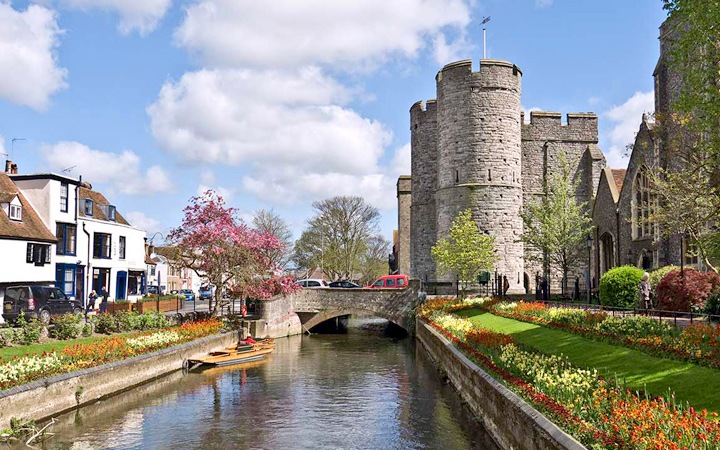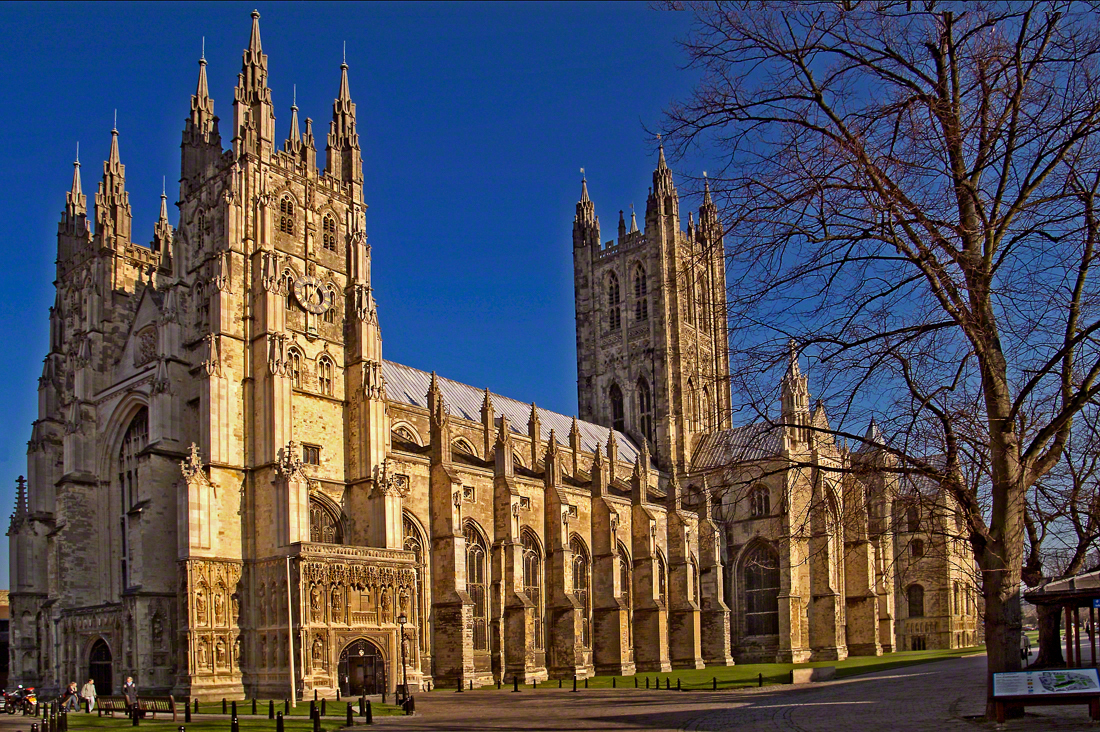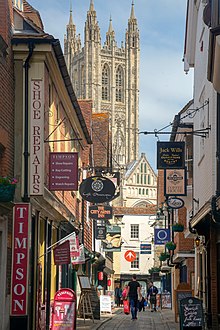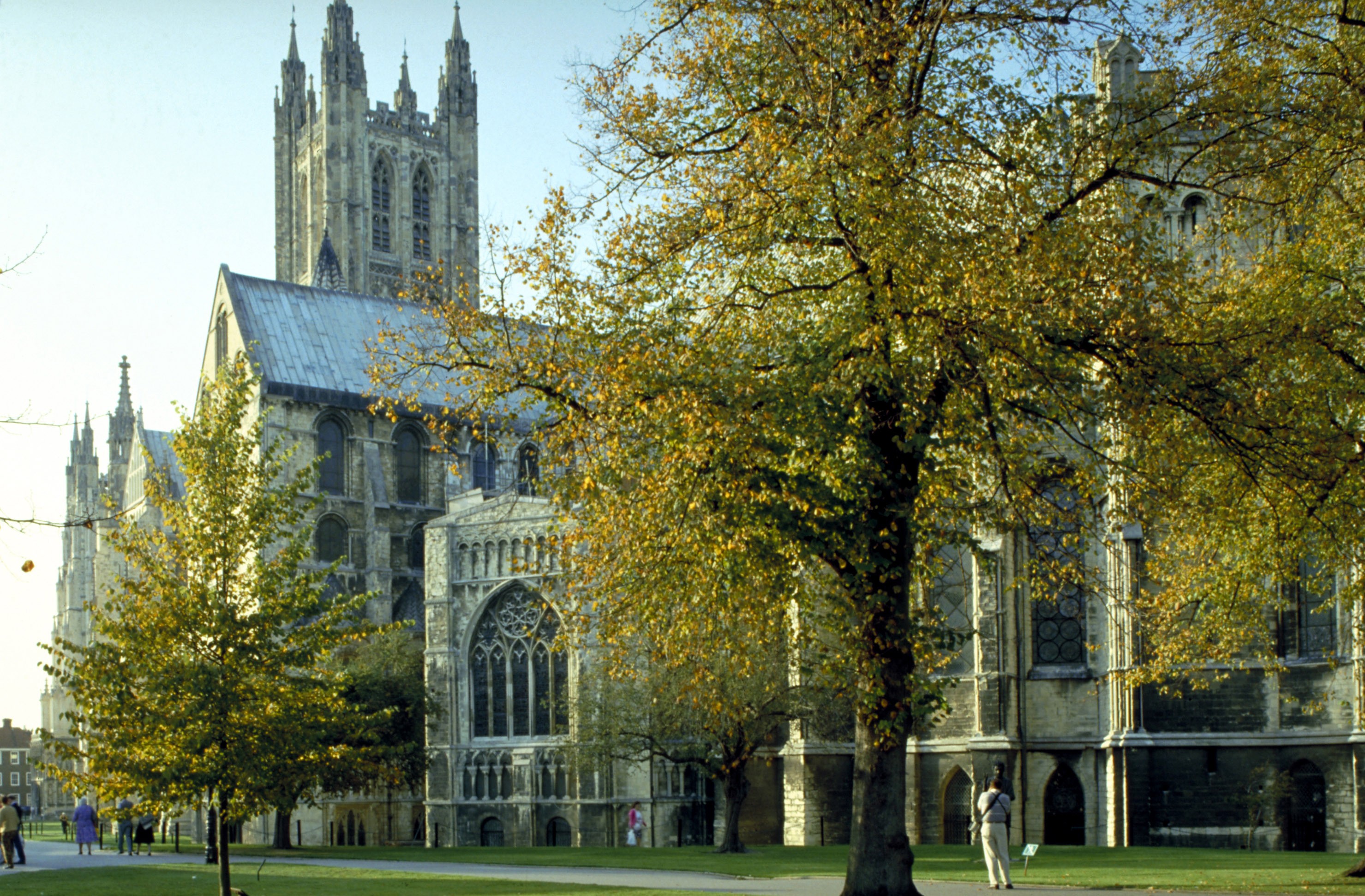
noun, plural can·ter·buries.
- a stand having sections for holding magazines, sheet music, or loose papers.
- a supper tray with partitions for cutlery and plates.
noun
- a city in E Kent, in SE England: cathedral; early ecclesiastical center of England.
- a municipality in E New South Wales, in SE Australia: a part of Sydney.
noun plural -buries antiques
- a late 18th-century low wooden stand with partitions for holding cutlery and plates: often mounted on casters
- a similar 19th-century stand used for holding sheet music, music books, or magazines
noun
- a city in SE England, in E Kent: starting point for St Augustine’s mission to England (597 ad); cathedral where St Thomas à Becket was martyred (1170); seat of the archbishop and primate of England; seat of the University of Kent (1965). Pop: 43 552 (2001)Latin name: Durovernum (ˌduːrəʊˈvɜːnəm, ˌdjʊə-)
- a regional council area of New Zealand, on E central South Island on Canterbury Bight : mountainous with coastal lowlands; agricultural. Chief town: Christchurch. Pop: 520 500 (2004 est). Area: 43 371 sq km (16 742 sq miles)
Old English Cantware-buruh “fortified town of the Kentish people,” from Cant-ware “the people of Kent” (see Kent). The Roman name was Duroverno, from Romano-British *duro- “walled town.”
Pope Gregory the Great intended to make London, as the largest southern Anglo-Saxon city, the metropolitan see of southern England, but Christianity got a foothold first in the minor kingdom of Kent, whose heathen ruler Ethelbert had married a Frankish Christian princess. London was in the Kingdom of Essex and out of reach of the missionaries at first. Therefore, in part perhaps to flatter Ethelbert, his capital was made the cathedral city. Related: Canterburian.
 Liberal Dictionary English Dictionary
Liberal Dictionary English Dictionary


